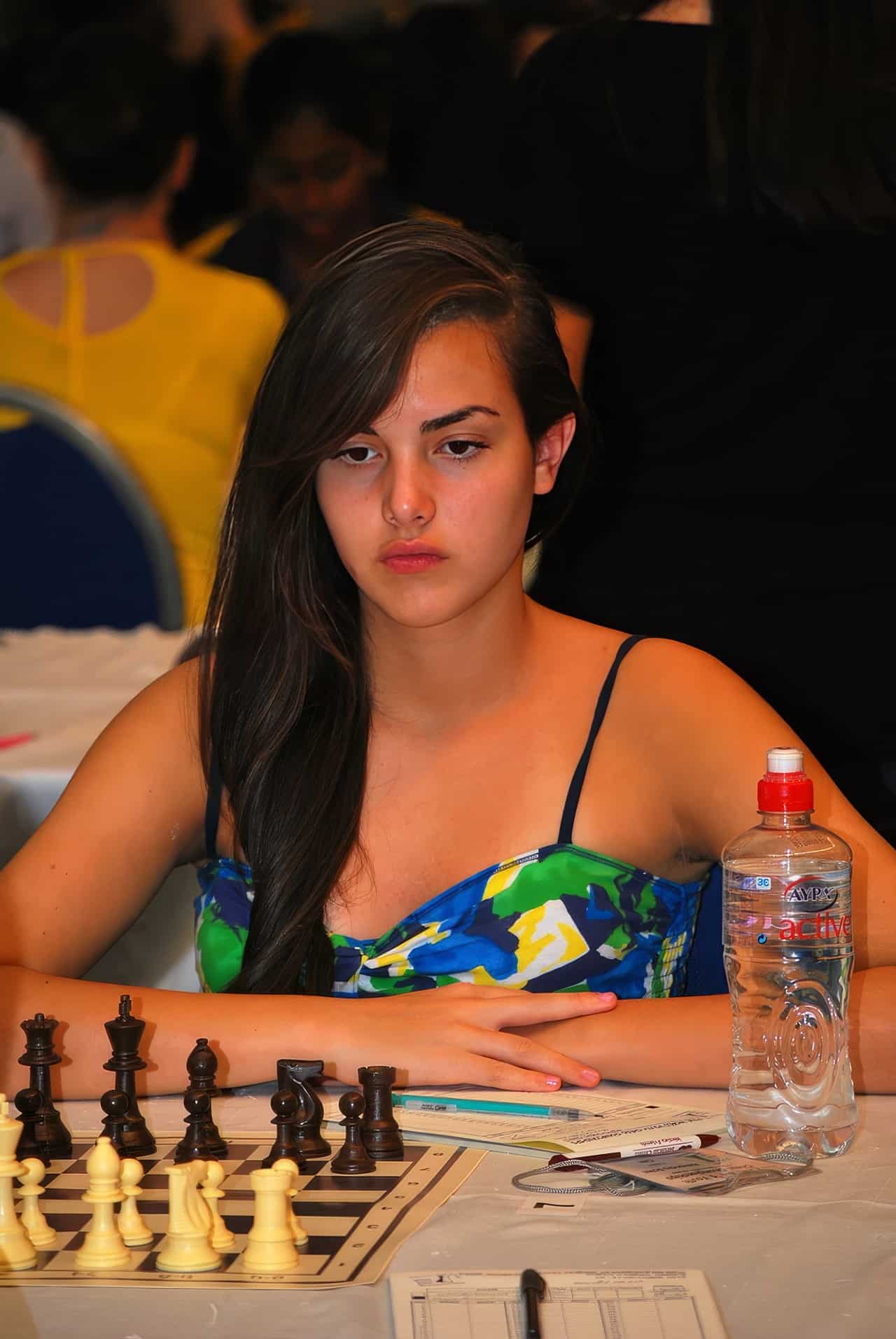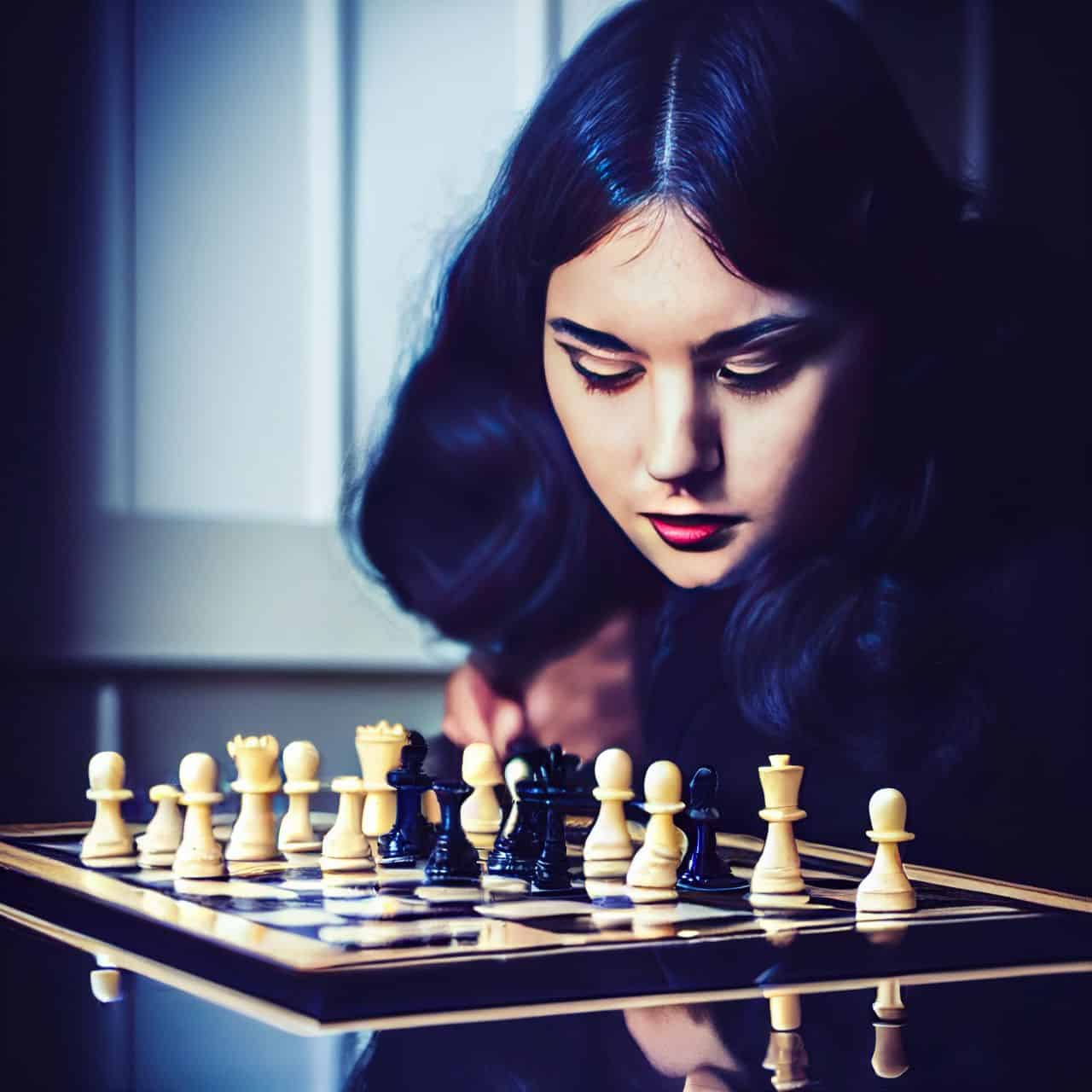Ever wondered what the true objective of chess really is? You’re not alone. As an avid player and enthusiast myself, I’ve often contemplated this very question, eventually leading me to conduct a deep dive into the intriguing world of chess.
Through my extensive research, you’d be surprised to discover that there’s much more to chess than just cornering your opponent’s king! In this post, we explore what exactly winning in Chess means – beyond just capturing the King.
Are you ready for a game-changing serving of knowledge?
Key Takeaways
The goal of chess is to achieve checkmate by trapping the opponent’s king and making it impossible for them to escape.
Capturing the opponent’s pieces strategically helps increase your power on the board and brings you closer to victory.
Outsmarting your opponent through strategic moves, such as using pins, forks, and skewers, is crucial in winning at chess.
Table of Contents
The Objective of Chess
The game of chess aims to trap the king. This is known as checkmate. It’s the big goal that every player wants to reach! Capturing your enemy’s pieces also plays a big part in winning.
When you take away more pieces, you have more power on the board.
A win can come from making your opponent give up too. We call this ‘voluntary resignation.’ Sometimes, a middle ground is reached where neither side wins or loses – we call this a draw or stalemate.
Achieving a draw could be seen as winning when it looks like you’re about to lose! Each move matters in chess, and every choice brings us closer to our target – being victorious over our rivals.
Winning Strategies in Chess
To win at chess, I believe the key lies in outsmarting your opponent, capturing their pieces strategically, and ultimately achieving checkmate.
Outsmarting the Opponent
I know that to win at chess, I need to be smart. I must think ahead and plan my moves. This is how I outsmart the other player. It’s not just about capturing his pieces but also about using them in a way that helps me win.
For instance, if I capture an opponent’s queen early in the game, it would give me a big advantage. A queen is very powerful in chess. But even with this lead, I can’t relax yet. The game isn’t over until it’s checkmate or someone gives up.
Tricks like pins, forks, and skewers come into play here too. Let’s say my knight has pinned one of his pawns to his king – he can’t move that pawn without putting his king in danger! These are clever ways to keep him on the back foot and control the board.
Capturing Opponent’s Pieces
Playing chess well means taking your rival’s pieces. You can do this by moving your piece to a square where the other player’s piece sits. This is called “capturing”. It adds power to your game.
The more pieces you capture, the fewer moves your opponent can make. Be smart, though – capturing all pieces is not the end goal. You should focus on getting to the king and calling out “checkmate.”
That’s how you win at chess! But remember, each piece has its own value, so think before you move.
Achieving Checkmate
Checkmate is your goal in chess. You do this by putting the other player’s king in a spot where it can’t get out of attack. That means none of their moves can save it, and you win!
Getting to Checkmate needs smart play and good use of all your pieces. Not playing fast helps, too, so you don’t miss any good moves or make bad ones. Keep an eye on the whole board.
Use both your big pieces like queens, rooks, and bishops carefully but also pay attention to pawns as well – they can become queens! So always focus on catching the king, not just taking other pieces.
Understanding Chess Endgames
Mastering the power of chess pieces, strategies for promoting pawns, and learning pawn endings are essential in achieving victory. Read on to enhance your endgame skills and increase your chances of success on the chessboard.
Learning the Power of Chess Pieces
Chess pieces hold distinct powers in the game. Let me break this down:
- First, we have the King. It’s the most crucial chess piece.
- The goal is to keep your king safe and checkmate your opponent’s.
- The power of each piece differs. Knowing these powers can help you win.
- Queens are also strong pieces. They can move any number of spaces in a straight line.
- Rooks can also move in a straight line but only forward, backward, or sideways.
- Bishops only move diagonally any number of squares on the board.
- Knights move in an L – shape movement – two steps forward, then one step sideways, or vice versa.
- Pawns have the least power but play a major role.
Mastering Pawn Endings
Playing chess well often means knowing how to end a game. It’s all about mastering pawn endings, and here are some tips:
- Watch how pawns move. They go forward but take in a slant.
- Use pawns to guard other pieces. This helps keep your strong players safe.
- Try not to play fast games. Slow and steady wins the race in chess!
- Remember, it’s not just about taking pieces; it’s what you do after that counts.
- Plan ahead with every move you make.
- Work on pawn endings as part of your game plan.
- Learn the power of each piece and how it can help the pawns.
- Study strategies like pins, forks, and skewers to become even better at chess.
Strategies for Promoting Pawns
In every chess game, it’s crucial to know how you can push your pawns forward effectively. Here are some strategies for promoting pawns that will help improve your game:
- Focus on keeping your pawn structure solid. This way, you keep the enemy pieces out.
- When possible, use your pawn to control the center of the chessboard.
- Try to create passed pawns. These are pawns with no opponent’s pawn blocking their path to promotion.
- Always protect your advanced pawn with other pieces if possible.
- Use a technique called “pawn storm.” Move a series of pawns forward to attack the opponent’s position.
- Avoid making unnecessary pawn moves in the opening phase of the game.
Chess Rules and Objectives

Chess rules and objectives are crucial to understand in order to play the game effectively.
Drawing and Stalemate
A game of chess can end in a draw or stalemate when neither player is able to achieve checkmate. Stalemate happens when a player doesn’t have any legal moves left but is not in check, resulting in a draw.
Sometimes, the game may also end in a draw if there has been too much material loss or if it seems impossible to achieve checkmate. As a chess player, my goal is always to either checkmate my opponent’s king or force their resignation.
I can also win by capturing their pieces or outsmarting them. To reach this goal, it’s important for me to understand the rules and strategies of chess and make effective use of any captured material throughout the game.
Conclusion
The goal of chess is to outsmart your opponent, capture their pieces, and ultimately achieve checkmate by trapping their king. It’s not just about winning through checkmate, but also about removing your opponent’s pieces and protecting your own.
Chess requires strategic thinking and careful planning to accomplish these objectives. Whether you win or end the game in a draw, the ultimate goal of chess is to test your skills and enjoy the challenge of this ancient board game.
So get ready to sharpen your mind and make your moves on the chessboard!



